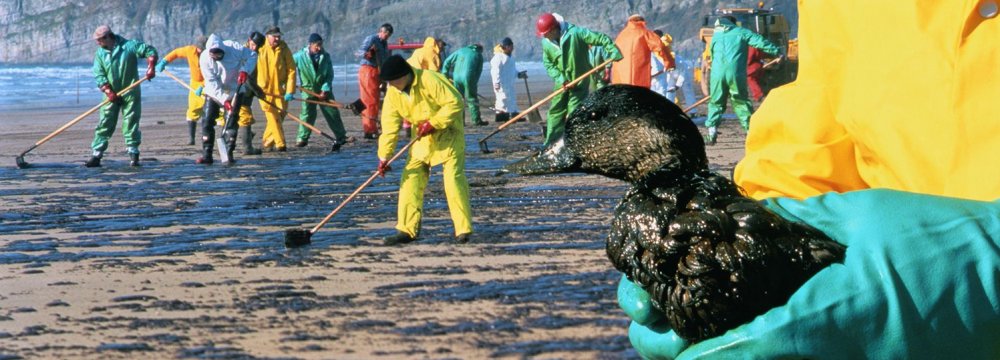
Gulf of Mexico Oil Spill May Be Largest Since BP Disaster

The Delta House floating production facility about 64 kilometers southeast of Venice, Louisiana, released 7,950 to 9,350 barrels of oil from early Wednesday to Thursday morning, according to operator LLOG Exploration Company, which would make it the largest spill in more than seven years, data from the US Bureau of Safety and Environmental Enforcement show, even though it’s a fraction of the millions of barrels ejected in the 2010 incident, Bloomberg reported.
"The LLOG spill was triggered by a fracture in a flowline jumper," Rick Fowler, the company’s vice president for deepwater projects, said in an email. "That is a short pipeline used to connect nearby subsea structures. Multiple barriers placed on either side of the fracture stopped the release, but the flowline jumper has not yet been repaired."
Oil production from Delta House dropped to around 57,000 barrels of oil equivalent per day from more than 90,000 before the spill, he added. Fowler noted that the subsea system affected by the fracture was shut in, though nearby connected systems were not.
"The fracture wasn’t caused by Hurricane Nate and there were no associated injuries," he said. According to an online statement, BSEE, the federal agency that regulates offshore energy and mineral extraction, started a five-member panel investigation into the cause of the spill. The members, including inspectors, engineers and accident investigators, will issue their findings and make recommendations.
“This panel investigation is a critical step in ensuring BSEE determines the cause, or causes, of the incident and develops recommendations to prevent similar events from occurring in the future,” Lars Herbst, BSEE’s Gulf of Mexico region director, said in the statement.
The Delta House platform, floating in 4,500 feet of water, came on stream in April 2015 with peak capacity of 100,000 barrels a day of oil and 240 million cubic feet a day of national gas. Its oil output enters the Heavy Lousiana Sweet crude pool. The 2010 blowout and explosion at the Deepwater Horizon ultradeep-sea drilling rig off the coast of Louisiana left 11 workers dead and set off the worst offshore oil spill in US history. BSEE, an agency of the US Interior Department, was established in the wake of the incident as part of reforms designed to separate federal regulatory responsibilities from lease sales and revenue generation.


Trump weighs using $2 billion in CHIPS Act funding for critical minerals

Electra converts debt, launches $30M raise to jumpstart stalled cobalt refinery

Codelco cuts 2025 copper forecast after El Teniente mine collapse

Barrick’s Reko Diq in line for $410M ADB backing

Abcourt readies Sleeping Giant mill to pour first gold since 2014

SQM boosts lithium supply plans as prices flick higher

Nevada army depot to serve as base for first US strategic minerals stockpile

Pan American locks in $2.1B takeover of MAG Silver

Viridis unveils 200Mt initial reserve for Brazil rare earth project

Kyrgyzstan kicks off underground gold mining at Kumtor

Kyrgyzstan kicks off underground gold mining at Kumtor

KoBold Metals granted lithium exploration rights in Congo

Freeport Indonesia to wrap up Gresik plant repairs by early September

Energy Fuels soars on Vulcan Elements partnership

Northern Dynasty sticks to proposal in battle to lift Pebble mine veto

Giustra-backed mining firm teams up with informal miners in Colombia

Critical Metals signs agreement to supply rare earth to US government-funded facility

China extends rare earth controls to imported material

Galan Lithium proceeds with $13M financing for Argentina project

Kyrgyzstan kicks off underground gold mining at Kumtor

Freeport Indonesia to wrap up Gresik plant repairs by early September

Energy Fuels soars on Vulcan Elements partnership

Northern Dynasty sticks to proposal in battle to lift Pebble mine veto

Giustra-backed mining firm teams up with informal miners in Colombia

Critical Metals signs agreement to supply rare earth to US government-funded facility

China extends rare earth controls to imported material

Galan Lithium proceeds with $13M financing for Argentina project

Silver price touches $39 as market weighs rate cut outlook

















